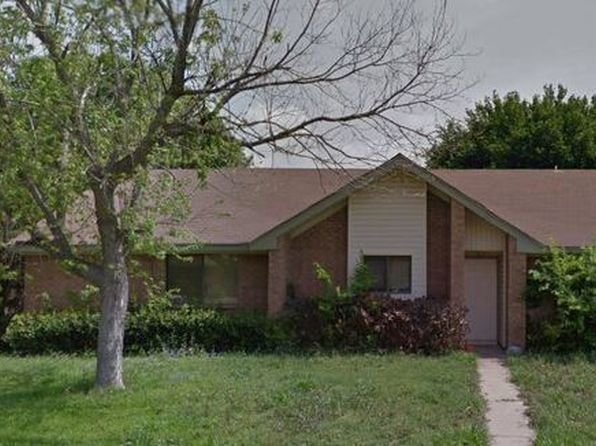Table of Content
Giving money away could cut the amount you eventually pay in IHT by a substantial sum if you live for seven years after making the gift. Many of us spend a great part of our lives trying in one way or another to accumulate as much money as we can. We start by filling a piggy bank with coins, then put money aside for education, save up for a car, for a deposit on a house and – the big one – for our retirement.
If you do this, your local authority will come after you, and possibly the person that was given the transfer of assets to reclaim what is owed. It is sometimes suggested that transferring your property into a lifetime trust could help you to avoid care fees. However, it is generally not advisable to use a lifetime trust for this purpose. If you are assessed for local authority care funding, there is a significant risk that any assets you have moved into a lifetime trust could be seen as a deliberate deprivation of assets. You may have seen Family Protection Trusts advertised as the answer to this problem.
Should elderly parents gift money?
Those companies promote the idea that doing so avoids the need for probate and they state that this is a legitimate excuse for the transaction. In reality, probate is almost always needed so the excuse will rarely be valid. Further, many of the companies and so-called ‘lawyers’ offering such services are not regulated by the Solicitors’ Regulation Authority. We understand that as an employer, ensuring you have a comprehensive legal framework in-place is crucial to the success of your business and the well-being of your employees.

Bankruptcy– If your children go bankrupt, then you could lose your home and the property. “Bromleys” is the trading name of Bromleys Solicitors LLP, a limited liability partnership registered in England and Wales under no.OC362541. If you’re a temporary resident in a care home, you won’t need to sell your home to pay for your care. If you’re still living in it, the value of your home isn’t included when working out how much you have to pay towards your care.
NHS Continuing Healthcare scheme
For example, it’s wrong for big companies and for rich people, but fine for everyone else to find legal ways to pay less tax. Whatever the arguments or your views are, all we can do is to try and provide you with unbiased information so that you can make the decision that is right for you. Some people are keen to take actions that help reduce paying residential care fees, using any legal means available. They take the view that if it’s legal then it’s fair game, and that if there are loopholes that exist, and the government or local authority don’t close them, then they can be exploited. However, there is a difference between the legal right to try to reduce paying residential care fees, within the law, and falling foul of the deliberate disposal or deprivation rules and the likely negative outcome of such efforts. Because transferring assets or savings is not recommended, our clients often ask if there is anything they can do to try and protect part of their estate against care home fees.
The Ombudsman’s office has now issued its findings and decided that North Yorks took its actions without ever completing a full financial assessment. It simply assumed, without cause, that the gifts were a deliberate deprivation of capital. Moreover, their calculations on the amount of deprived capital were not backed up by any evidence. It did not properly take into account the proven fact that there was already a history of gifting before Mrs Y ever went into the care home.
Court of Protection
Mrs Y is still in the same care home and pays all her monthly income towards the fees. She cannot cover the full cost and now owes £30,000 to the home, which has said it will take ‘further action’ if the debt is not paid. Franklins are one of the premier law firms in Northampton and Milton Keynes.
Many people will be tempted to simply gift their money/property to their children, to avoid care fees. However, you need to be very careful as this gift could be classed as a Deliberate Deprivation of Assets. This is when a local authority decides that you have deliberately reduced your capital to avoid care home fees.
In that case, the value of the property would be taken into account when the council assesses your ability to pay for care. So, you could end up having to pay for your care, despite no longer having a house to fund those costs. This means that if the transfer of the property was at full value, then there was no deliberate deprivation and as such the proceeds from the sale will not be in the council's financial review. We provide a down to earth approach and are experienced in discussing financial circumstances and arrangements to protect assets. We’ll make the experience as stress free as possible and we’ll handle the process in the most efficient manner. As solicitors we advise on the benefits of having a properly drafted and executed Will to ensure that your wishes are carried out when you pass away.
There may also be Inheritance Tax to pay should you pass away within 7 years of gifting the property. You can learn more about the IHT tax rates here - Inheritance Tax on Gifts. Divorce– If any of your children get divorced, then again their spouse could look to claim the property and you could lose your home. Death– If any of your children die, then their spouse or family may well look to claim the property and you could again lose your home. Our expert team we’ll explain your options and clearly set out any fees involved.
If you ever needed to go into residential care permanently, you would have to sell your property to pay for the costs, unless it is occupied by a member of your family . The cost of your care is determined in a care needs assessment, where the local council sends a specialist to your house to carry out an assessment to see which type of care is best for you. As more and more people are requiring care in their old age, it is important to plan ways to finance any potential future care fees as soon as possible. Problems could also arise if you fall out with the person you gifted your home to, if they go bankrupt or fail to keep up mortgage payments, or if they divorce their partner who consequently is entitled to a share in your property. In any of these scenarios you could find your home being sold from under you. Problems arise if you are the last surviving partner of a couple, in which case the value of your home will count towards your capital and you may be forced to sell to cover care home costs.

Seatons Solicitors does not accept any responsibility for any loss which may arise from reliance on information or materials published on this website. We inform you of the risks, the consequences, the costs and the downsides. Ultimately though, it is important to form your own understanding of the risks and downsides. Falling Out– If your children fall out with you, then you could again end up losing your property.
Whether the person is to be treated as possessing capital, of which they have deprived themselves, for the purpose of decreasing the amount that they may be liable to pay towards the cost of care. Has produced detailed guidelines for solicitors on gifts of property and their implications for long-term care. There are a number of reasons why you might think about giving away your property or some of your assets as you get older - for example, to your children, another relative or a friend. Naturally it follows that the more you have accumulated, the more that your eventual care costs will be covered. One of the most common questions we are asked by clients is “How do I protect my assets if I ever need to go into a care home?
Our legal expertise covers all aspects of employment law and our team have a strong understanding of the fast-paced nature of the field. With employment rules and regulations in a constant state of change, our attention to detail sets us apart and leaves you feeling confident you’ve put your trust in the right solicitors. From drafting workplace policies, to more divisive matters such as discrimination – Bromleys are well-placed to provide both the highest level of service and handle all cases sensitively. A living trust can protect assets from a nursing home only if the trust is irrevocable. An irrevocable trust can provide asset protection because with this type of trust, the grantor — the trust creator — doesn’t own assets in the trust from a legal standpoint. So, Medicaid will usually pay for your nursing home care even though you own a home, as long as the home isn’t worth more than $536,000.
Are regular cash gifts a deliberate deprivation of assets to avoid care fees?
When considering these steps it is important to remember that although we have a population who are living longer, you may never require to move to care accommodation. Should you require to move to care accommodation and you have dissipated your assets you may have no choice as to what care home you live in. You must have legitimate reasons for setting up the Trust, however, and not simply trying to avoid care home fees. It is therefore important that you speak to a legal specialist to ensure the trust is set up correctly.























